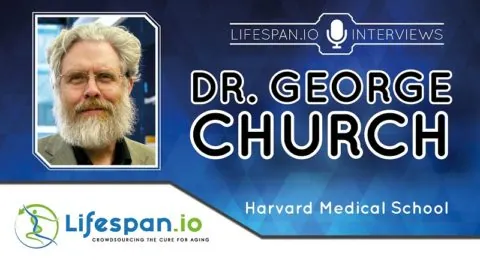March 26, 2024
After a total of 69 rejection-preventing gene edits, history has been made with the first-ever successful transplantation of a pig kidney into a human patient. Xenotransplantation within reach Organ transplantation has been one of modern medicine’s biggest triumphs, helping to save innumerable lives. It is also viewed as one of the pathways to life extension....
October 17, 2023
Last year’s inaugural Longevity Summit Dublin conference was a good start. Its second iteration, held in August this year, was universally acclaimed for being even bigger and better. Just like the last time, this conference was marked by a considerable presence of longevity advocates alongside scientists and entrepreneurs. Unfortunately, Lifespan.io executive director Stephanie Dainow, who...
March 14, 2023
Professor of Genetics at Harvard Medical School, a veteran geroscientist, and a serial entrepreneur, George Church hardly needs an introduction. While we are always happy to discuss the present and future of geroscience with him, this interview focuses on the two gene therapy papers that he recently co-authored, which drew a lot of attention due...
July 28, 2021
Professor of Genetics at Harvard Medical School and one of the most prominent geroscientists, George Church works on gene therapies that can potentially reverse age-related diseases. We had the opportunity to interview this prolific researcher and entrepreneur, who is involved in dozens of startups, on topics ranging from the current state of gene therapy to...
December 06, 2019
After experiencing financial issues, DNA testing company Veritas Genetics has announced the suspension of its U.S. operations in an unexpected announcement on December 4th 2019. The company is perhaps best known for being co-founded by renowned Harvard University geneticist George Church and has been working towards reducing the costs of genome sequencing so that it...
August 06, 2019
Today, we want to draw attention to a new study that shows how partial cellular reprogramming was able to reverse cellular aging and address age- and injury-induced blindness in mice. Epigenetic alterations One of the proposed reasons we age is the changes to gene expression that our cells experience as we get older; these are...








